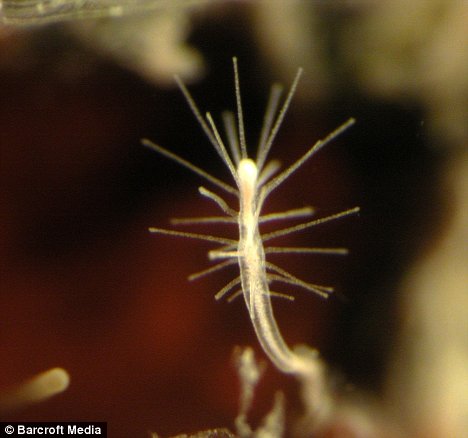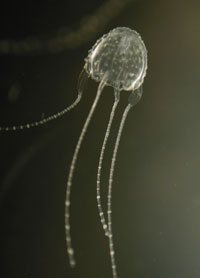Stellify
StarChild
My friend said something about the immortal jellyfish, so I decided to look into it. The few articles I've found online seem kind of vague, and I can't tell if the jellyfish reverts back to its own polyp state and then ages again, or if it turns into a polyp colony (ie: does it turn into one polyp or many before aging again?)
Whatever the case, I'm sure geneticists and beauty companies everywhere are going crazy with this.
"Immortal" Jellyfish Swarm World's Oceans
The Curious Case of the Immortal Jellyfish | Discoblog | Discover Magazine
Either way, it would seem they're taking over the world's oceans.



Polyp Stage:

Whatever the case, I'm sure geneticists and beauty companies everywhere are going crazy with this.
"Immortal" Jellyfish Swarm World's Oceans
The Curious Case of the Immortal Jellyfish | Discoblog | Discover Magazine
Either way, it would seem they're taking over the world's oceans.



Polyp Stage:


